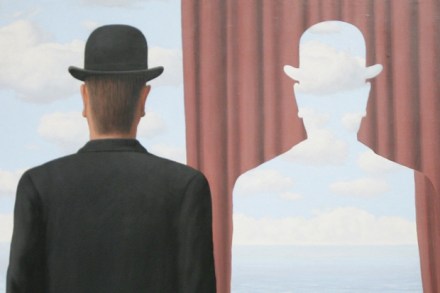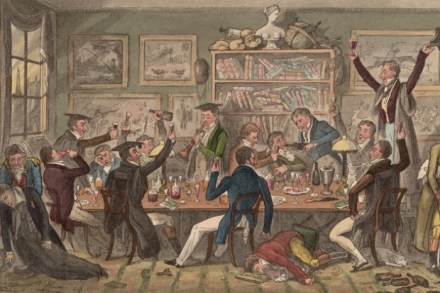The faceless man in the bowler hat
Surrealism was, at least initially, as much about writing as painting. A plaque on the Hotel des Grands Hommes in Paris’s Place du Pantheon records that the oneiric movement began in 1919 when André Breton and Philippe Soupault invented ‘l’ecriture automatique’ at numéro 17. Automatic writing, with consciousness suspended, was supposed to open a conduit to an internal dreamworld. René Magritte (1898–1967) became one of the most famous Surrealist painters, but he wrote throughout his life: detective stories, manifestoes, criticism, essays, prose-poems, lectures, surreal bric-a-brac. His Ecrits Complets was published by Flammarion in 1979 and ran to 764 pages. The avant-garde publisher John Calder intended an English edition, but it










